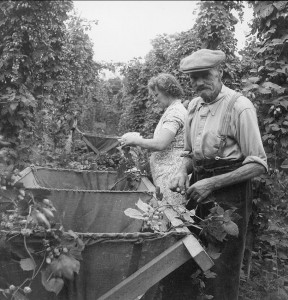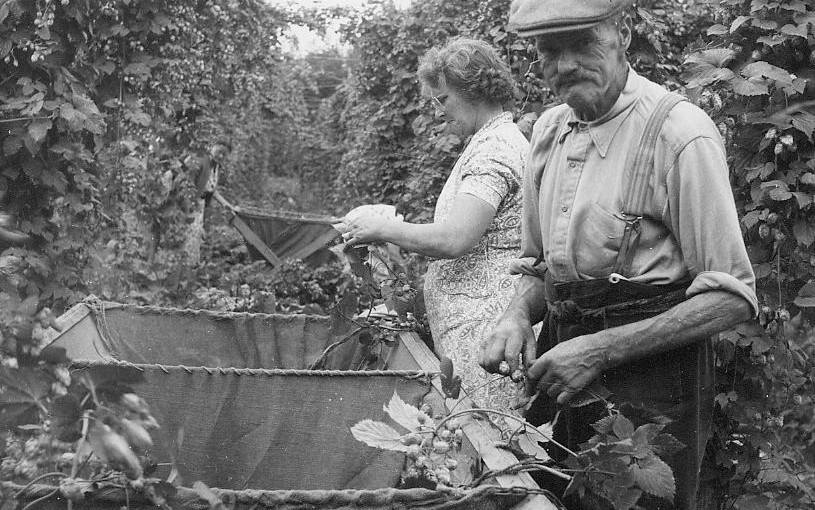By A Leadbetter
I have been watching the programme on the television “The Way We Were”. This does not go back far enough for anyone in their nineties.
One of my first memories was a ducks nest fireplace in a large open chimney breast. From the chimney hung a chain with hooks supporting a large boiler. On each side of the ducks nest was a ledge wide enough to take one or two iron saucepans, so all of our dinners were boiled. My brother was three years older than me so mother would send us to Monk’s shop to get two penny worth of black treacle for our tea, or we could buy two penny worth of broken biscuits or a spiced orange for a penny. I remember when the time came for me to start school.
I went with mother for her to get me my first pair of hard leather hob nail boots it was 1917. Ela Goble, who was just a little older than me, walked me to school. Our teacher was a Mrs. Houseman there were no books so we had to make our letters in sand boxes copied from the black board. Just before the War ended we had slates and slate pencils this made learning easier. We still chanted our times tables, I soon progressed and was good at maths, biology and art and always fighting for top marks in many other subjects, all my schooling was at the Wesleyan Methodist School most of us went to Sunday School there.
I remember my first Sunday School outing, it was to Hastings we all waited with great excitement to be picked up. When Mr Gower came with two Wagonetts and four horses we climbed in but the journey was long and by the time we got to Hastings, had a look round and had tea, it was time to get on board and trot back home.
The next year it was better, Timsons Charabancs were much faster. Remember you young people of today, every penny we spent we had to work for. My brother and I would go down in a wood on a Saturday and shave a hundred hop poles for a shilling, they were about fourteen foot long. Every penny earned was saved for our next outing. By now the Charabanges had started going to Bodiam Castle but they were so slow going up school hill we would run up behind them and people would throw out penny’s.

We had no holidays except one day for each Bank Holiday, Christmas, Boxing Day, Good Friday, Easter Monday, Whit Monday and August Bank Holiday Monday. We had a long break for hop picking this could last up to six weeks the hops were picked in a wooden frame lined with hop sacking. Us kids had two pick in a box and mother would pay us a copper or to or a book. You had to pick so many boxes full, before you could go out to play. By this time I was growing up. I joined the chapel choir and stayed until I got a job where I was working seven days a week. As the days got lighter we would spin tops, there was the ‘turnip’ ‘the carrot’ and the “window breaker”. The girls would play hop scotch or skipping, Boys would sit and try to make a whistle pipe out of ash sticks.
There were several momentous events in the 1920’s besides the introduction of the charleston. The hot summer of 1921 still sticks out in my mind, many wells ran dry. Then the Wembley Exhibition of 1924.
1926 saw the great miners strike, there was unrest around the whole country and the army was called out, as young lads we watched the tanks go by with excitement. Then it was time for me to leave school. I started my working career with two years farm work. At sixteen I got my first license to drive vehicles of all types I had many driving jobs until I joined the East Kent Bus Company where I stayed for 40 years.
